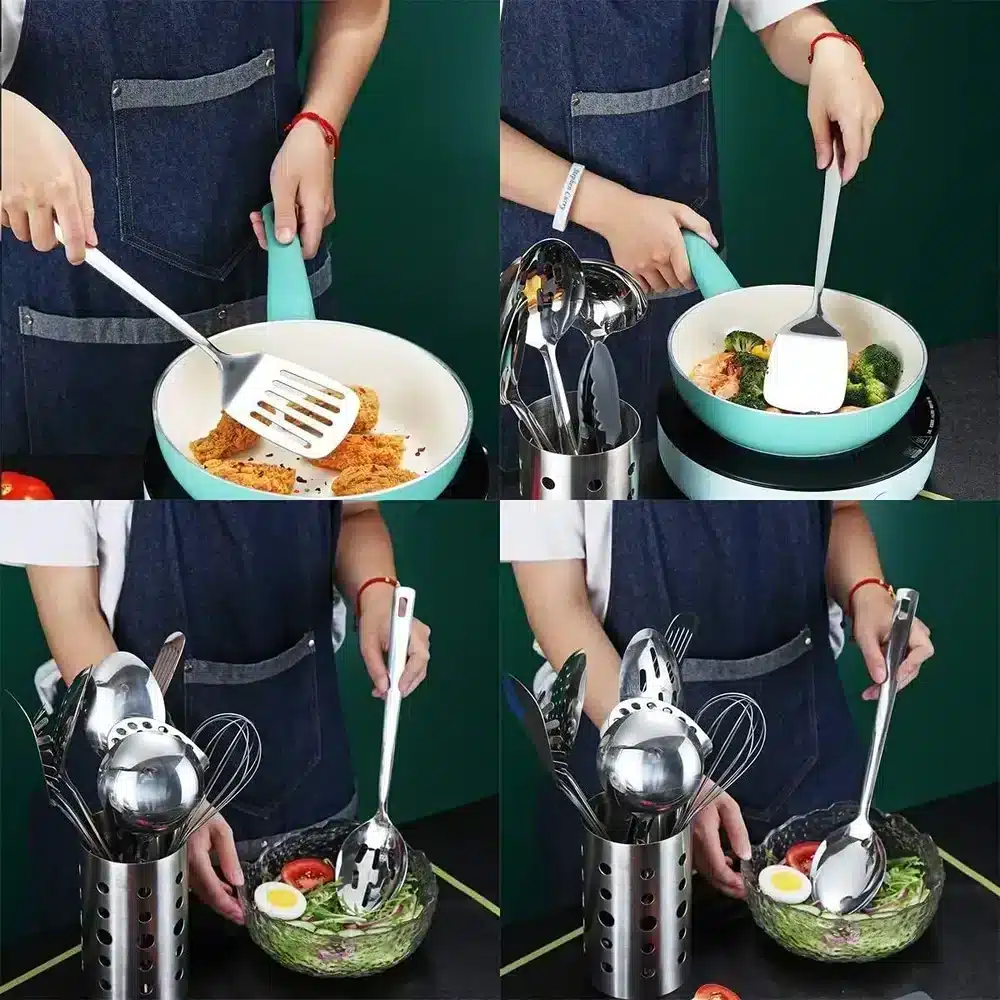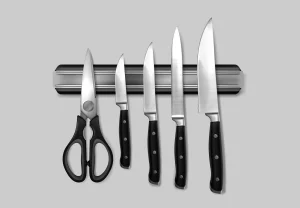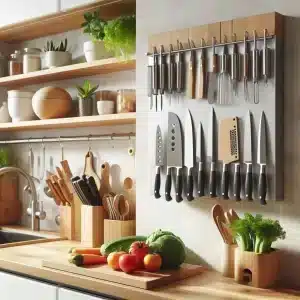Aluminium is a popular material in kitchenware, renowned for its unique combination of properties. It’s lightweight, conducts heat efficiently, and is resistant to corrosion, making it a top choice for various kitchen utensils.
Key properties of aluminium
Aluminium’s low density makes it incredibly light, a quality that is especially appreciated in cookware like pots and pans. Despite its weight, it’s remarkably durable, resistant to warping under heat.
One of the most significant advantages of aluminium is its superior heat conductivity. Aluminium cookware heats up quickly and evenly, ensuring well-cooked food without hot spots.
Naturally forms an oxide layer when exposed to air, protecting the utensils from rust and corrosion. This property extends the lifespan of aluminium kitchenware, making it a cost-effective choice.
Aluminium in Everyday Kitchen Use
Aluminium’s versatility is on full display in the kitchen. From foil for food storage to bakeware and cooking pots, its ability to withstand high temperatures and conduct heat efficiently makes it an indispensable kitchen material.
The Safety of Aluminium in Cooking
While there have been concerns about aluminium’s safety in cooking, extensive research has shown that the amount of aluminium leached into food is minimal and well below the limits considered harmful. Modern aluminium cookware is often anodized or coated, further reducing any health risks.





